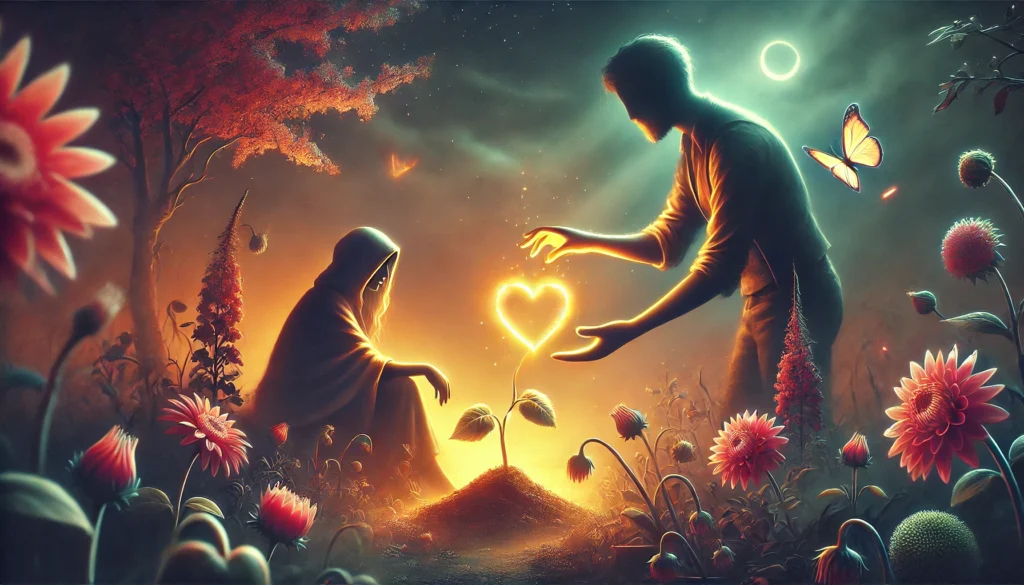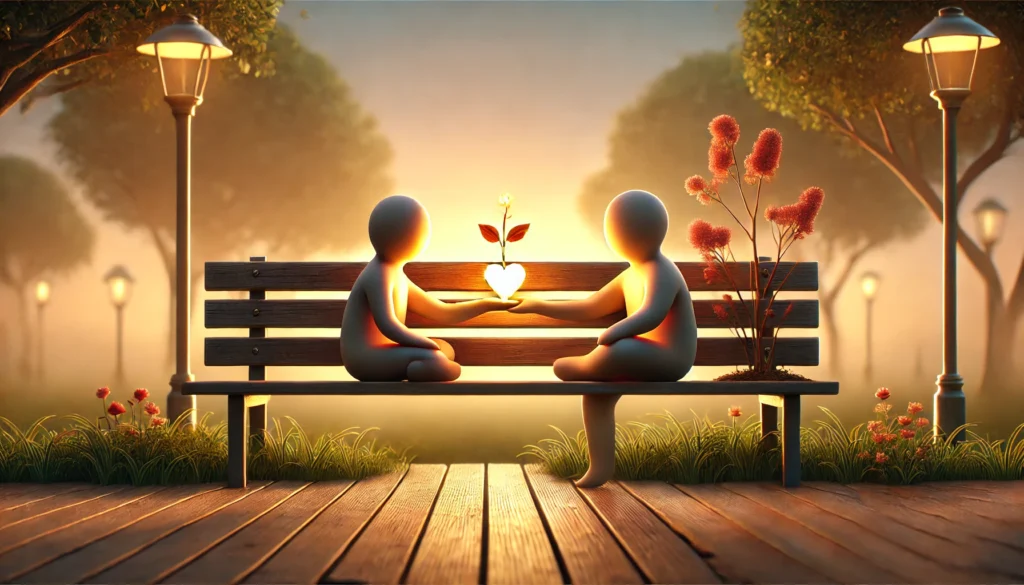
Understanding Love and Emotional Connections
Love is a complex emotional experience that manifests differently among individuals and relationships. It can be categorized into various types, with passionate love and companionate love being prevalent forms. Passionate love is characterized by intense feelings of attraction and longing, often described as an infatuation that can lead to a powerful connection during the initial stages of a relationship. In contrast, companionate love is defined by deep affection, mutual respect, and a strong sense of commitment that develops over time, emphasizing companionship and partnership.
Emotional connections play a pivotal role in the sustenance and evolution of love between partners. These connections are shaped by numerous factors, including shared experiences, vulnerability, communication, and emotional intelligence. Emotional intelligence, the ability to perceive, utilize, understand, and manage emotions, fosters healthier relationships by enabling individuals to navigate their emotional landscape and that of their partner. Individuals with high emotional intelligence are typically more adept at recognizing their partner’s needs, leading to stronger and more meaningful connections.
The dynamics of love are also influenced by psychological factors, particularly attachment styles that individuals developed in their early relationships. These attachment styles—secure, anxious, avoidant, and fearful—form the blueprint for how individuals relate to others in romantic contexts. A secure attachment fosters healthy intimacy and trust, while anxious and avoidant attachments may lead to challenges, influencing how love is expressed and experienced. Understanding these different attachment styles can help individuals navigate their relationships more effectively, opening pathways for reconnection and emotional restoration.
In summary, love is a multi-faceted emotion shaped by emotional connections and psychological influences. Recognizing the various types of love and attachment styles can provide valuable insights into interpersonal dynamics, paving the way for deeper understanding and emotional growth.
Signs That Your Partner’s Love Has Faded
Identifying the subtle and overt signs that indicate a decline in romantic feelings is crucial for understanding the status of your relationship. When love fades, it often manifests in various behaviors and changes that might not be immediately apparent. Here are some distinct signs that may indicate your partner’s affection is diminishing:
Firstly, a noticeable change in communication patterns can be a strong indicator. If your partner has stopped sharing their thoughts or feelings with you, or if conversations have become superficial, this may signal a decline in emotional connection. Secondly, reduced affection, such as fewer hugs, kisses, or expressions of love, often reflects a shift in their feelings. Once-prominent displays of affection can dwindle over time, leaving an emotional void.
Moreover, increased conflict or arguing can also show that love is fading. When a partner displays impatience or frustration more frequently, it may suggest they are no longer invested in resolving issues in a constructive manner. This may be accompanied by emotional withdrawal, where a partner becomes less engaged and less responsive to your needs.
Another sign can be a lack of interest in activities that you previously enjoyed together. If your partner frequently declines invitations to spend quality time or engages in activities without you, this could indicate a disconnection. Additionally, a partner who seems to be preoccupied with their own interests, neglecting joint responsibilities, may be illustrating a withdrawal of emotional investment.
Changes in intimacy, whether physical or emotional, also point to a shift in feelings. If your partner no longer seeks to connect intimately, it is a significant warning sign. Lastly, the absence of future planning or discussions about long-term goals can suggest a lack of commitment, illustrating that they may no longer envision a future together.
Recognizing these signs can empower you to address the situation and assess where your relationship stands. Understanding the nuances of your partner’s behavior is essential for navigating this complex emotional landscape.

Strategies to Rekindle Love
Rekindling love within a relationship requires dedication and a thoughtful approach. The following actionable strategies serve as a guide to help individuals reignite the spark that may have dimmed over time.
1. Prioritize Quality Time: Spend intentional time together without distractions. Set aside time each week for a date night or a shared activity to foster connection.
2. Enhance Emotional Communication: Open up about feelings and experiences. Regularly check in with each other to express emotions, which can strengthen the emotional bond.
3. Foster Physical Intimacy: Small gestures like holding hands, hugging, or cuddling can enhance the sense of closeness and affection, thereby reigniting physical attraction.
4. Create New Memories: Engaging in new activities together can refresh the relationship dynamic. This could be anything from trying a new hobby to traveling to new places.
5. Show Appreciation: Acknowledge and appreciate your partner’s efforts. Simple expressions of gratitude can reaffirm their importance in your life and foster mutual respect.
6. Be Mindful of Non-Verbal Cues: Pay attention to body language and emotional signals, as they convey feelings that words may not. Responsive behavior can enhance mutual understanding.
7. Engage in Shared Goals: Collaborate on common projects or aspirations, as working towards shared objectives can create a sense of unity and partnership.
8. Seek Professional Guidance: Sometimes, consulting a relationship therapist can provide neutral insights and strategies for overcoming obstacles and improving communication.
9. Embrace Change: Adapt to each other’s evolving personalities and needs. Flexibility fosters growth in relationships, allowing both partners to flourish together.
10. Practice Patience and Perseverance: Rekindling love is rarely instantaneous. It requires consistent effort and understanding that change takes time. Celebrate small victories along the way.
Employing these strategies fosters a nurturing environment where love has the potential to flourish once again. While the path may be challenging, with patience and dedication, rediscovering affection in a relationship can become a rewarding journey.
When to Seek Professional Help
Rekindling love can often be a complex emotional journey, and there may come a time when attempting to restore a relationship necessitates external support. Recognizing the right moment to seek professional help is crucial for fostering a healthy and constructive path towards relationship healing. Various indicators can signify the need for intervention, whereby continuous unresolved conflicts complicate communication and foster resentment. If arguments frequently escalate without resolution, it may denote deeper issues that professionals can effectively address.
Signs of emotional distress are another critical factor to consider. If one or both partners are exhibiting symptoms of anxiety, depression, or a general sense of overwhelm regarding the relationship, these feelings can inhibit efforts to reconnect. Professionals specializing in couples therapy can work with partners to unravel these emotions and establish a more supportive environment. Additionally, differing relationship goals often create tension; if partners have diverging visions for the future, these discrepancies can lead to frustration and confusion. In such cases, guidance from a relationship coach might help clarify individual aspirations and reconvene partners towards a common ground.
The importance of couples therapy lies in its potential to provide valuable tools for communication and conflict resolution. A trained therapist can offer insights and strategies that empower couples to address challenges effectively. For those seeking alternative options, relationship coaching may provide a slightly different focus, emphasizing personal growth and alignment with one’s values. Numerous resources are available for individuals interested in exploring these options, including online directories and local community organizations that specialize in relationship support.
In nurturing a relationship, taking proactive steps when necessary can lead to a more fulfilling partnership. By recognizing the signs that suggest a need for professional help and being willing to seek assistance, partners can work towards a stronger bond and renewed love.
